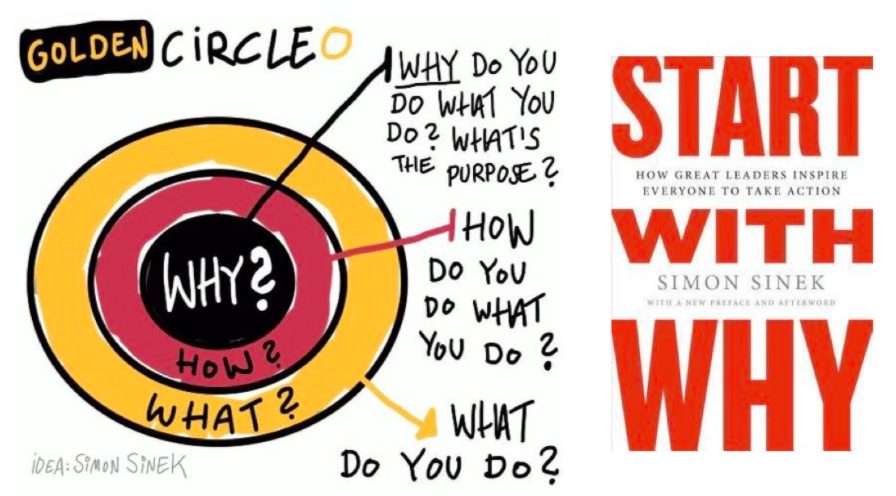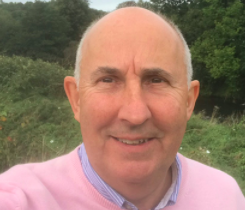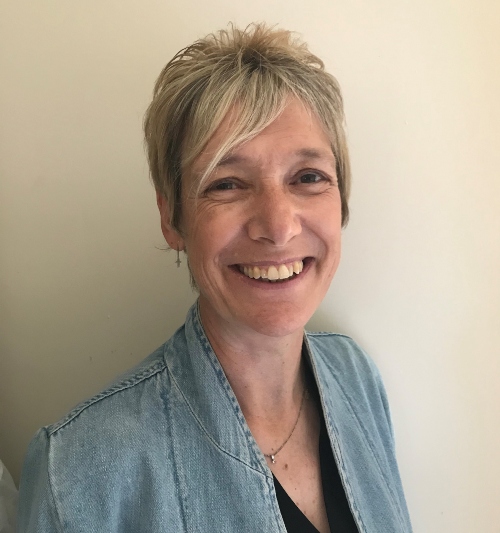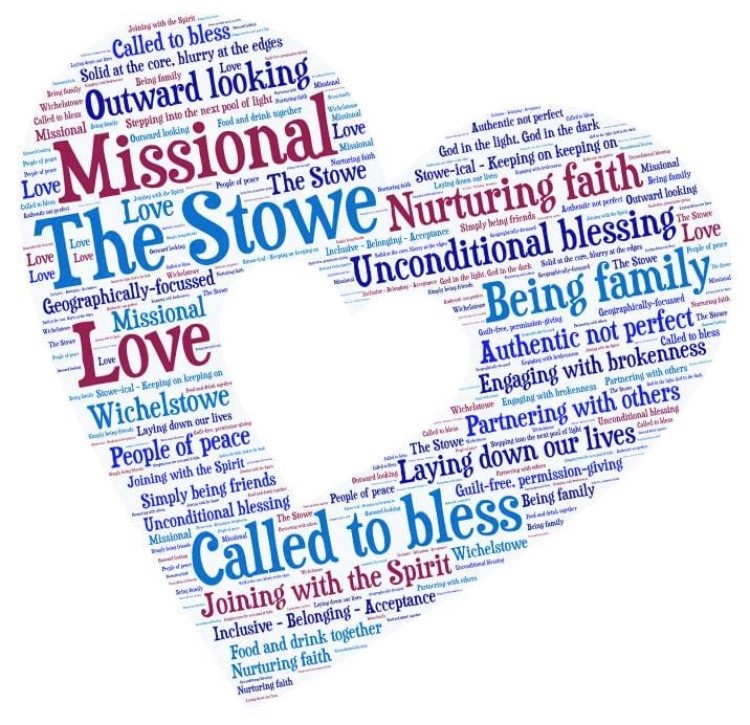Know your why; choose your narrative; live out your DNA
Know Your Why (Simon Goddard)
 This season of Covid-19 has been filled with tragedy and challenge, and yet, in the midst of that, as we’ve listened to Baptist pioneers, we’ve heard stories about how this has also been a time of flourishing and joy. A key characteristic of pioneering is ‘contextual’ mission – embodying the gospel in whatever context you find yourself within. One of the skills of the pioneer is to immerse themselves in and seek to understand the culture they find themselves in, and then interpret the gospel, in words and actions, so that it finds relevance there.
This season of Covid-19 has been filled with tragedy and challenge, and yet, in the midst of that, as we’ve listened to Baptist pioneers, we’ve heard stories about how this has also been a time of flourishing and joy. A key characteristic of pioneering is ‘contextual’ mission – embodying the gospel in whatever context you find yourself within. One of the skills of the pioneer is to immerse themselves in and seek to understand the culture they find themselves in, and then interpret the gospel, in words and actions, so that it finds relevance there.
In the rapidly changing context that we have all found ourselves in this year, those who have coped the best are those who, have been clear about their ‘why’. In Simon Sinek’s book Start with Why he differentiates between organisations that define themselves by their ‘why’ and those that define themselves by their ‘what’. Perhaps many churches fall into the latter category, with clarity on what activities fill the normal church calendar, but less clarity on why each of them are there.
I often ask churches the ‘why do you exist’ question, and sometimes I’m misunderstood. They think that I’m suggesting that they should let the church die, when I’m actually asking them to discover exactly what it is they are being called to live for. If many of us are honest with ourselves, our Sunday gatherings have become the reason we exist. It’s where most of our energy and focus goes, and the one thing we’ve been most unwilling to sacrifice during lockdown. In such cases our ‘what’ has replaced our ‘why’.
In my mind the reason that any church exists, and the calling upon every single disciple, is to be an active partner in the mission of God. As we move forward into the months ahead, thinking about how and when we might restart our old calendar of activities, perhaps we would do well to repeatedly ask that annoying question often asked by inquisitive toddlers – “why?”.

Choose Your Narrative (Roy Searle)
For the times they are a changing, Bob Dylan
 Back in 1992, with South Africa facing an uncertain future, a group of people gathered together to imagine what the future of the country might be. The Mont Fleur Summits saw a diverse group gather to engage in scenario thinking; an innovative and transformative way of looking at the present and envisaging the future. They didn’t come up with definitive answers or provide detailed solutions but instead stimulated debate and were creatively imaginative about ways forward for a society undergoing unprecedented change.
Back in 1992, with South Africa facing an uncertain future, a group of people gathered together to imagine what the future of the country might be. The Mont Fleur Summits saw a diverse group gather to engage in scenario thinking; an innovative and transformative way of looking at the present and envisaging the future. They didn’t come up with definitive answers or provide detailed solutions but instead stimulated debate and were creatively imaginative about ways forward for a society undergoing unprecedented change.
They then shared a set of stories about what might happen to their country over the next 20 years, to 2020:
-
The Ostrich in which a negotiated settlement to the crisis in South Africa was not achieved and the evils of Apartheid prevailed with the Government continuing to be non-representative.
-
The Lame Duck in which a settlement was achieved but the transition to a new South Africa was too slow and indecisive.
-
Icarus in which the transition was rapid but too unrealistic, with unsustainable, popularist economic policies.
-
Flight of the Flamingos in which policies were sustainable and provided a path for the country to move together towards inclusive growth and democracy.
These stories became key narratives and they were shared throughout the nation as people thought about what the future might be. The stories provided, with the Flight of the Flamingos, a narrative to which people could relate to and work towards achieving. The story dropped into the consciousness of the nation, gave people hope and the prospects of a different future that was challenging yet transformative, inclusive and holistic. The story changed the language and language helps to change the way people think and act.
How could a simple storytelling process produce such an impact? Well, scenario planning is open and informal, its creative and participatory and encompasses all aspects of life; social, political, economic, cultural, ecological and spiritual realms. The process of telling stories encourages people to identify with them and to listen and contribute from their varying perspectives.
In discussing an unpredictable future, there is no one revelation or known pathway but there is a road that invites people to travel together on into the future.
Many of the pioneers that I’m privileged to meet, encourage and journey with are a gift to us as a movement at this time. As pioneers, our world is one of creative imagining. We are, by virtue of who we are, as much as what we do, able to offer apostolic and prophetic insights to help us as Baptists Together to imagine what being disciples of Jesus and being church, association and union might look like in a changing world.
An example of a narrative that as pioneers we are offering to the denomination at this time can be seen in the Parable of the Forest video which has been offered alongside the Pioneer Manifesto going before the Baptist Union Council this autumn for consideration.
This narrative has the potential to shape our future as a movement. It points to new life and fresh growth, to hope and transformation, and it has the potential to foster relationships and networks in the missional adventure that our movement is being called into. For such a time as this let’s listen to the pioneer story makers, storytellers and story keepers who can help us all in the shaping of our future.
Live out your DNA (Ali Boulton)

When lockdown was announced and Church buildings were closed, the thing that struck me about my local pioneering on a new estate, and the church that has been birthed here, was that very little changed. Externally some things changed. We stayed in our houses, apart from allowable ventures out, and we stopped being in physical spaces with groups of people. But, in reality, that made very little difference to our calling or joining in with God’s mission on our estate.
For more than a decade we have been a fragile but growing group of followers of Jesus - seeking to embody God’s love – both giving and receiving - with our neighbours on a new housing estate. We have no building, initially no church gatherings and no tradition of activities – our focus is living out our agreed (we believe Spirit-inspired) DNA values around which we covenant. We hold our activities lightly in response to the ever-changing context on the estate.
At times all this is a challenge. However, when lockdown hit, it was the centrality of our DNA values – who we are/why we exist – that held us securely. The questions and challenges remained the same as always, how are we living out our DNA in this context today? That included questions like: How am I ‘called to bless today’, how am I called to be ‘friends’ today? How am I called to ‘lay down my life’, to ‘nurture faith’ and ‘join in with the Spirit’? How am I called to embrace ‘authenticity not perfectionism’ and ‘being family’?
There is not the space to explain this in detail but here are some examples to ground this in actual practice. One of the ways in which we lived out the call to bless the community was to be a calm and peaceful presence in the initial anxiety. As we are friends (another DNA value) with lots of local people throughout the estate, people got in touch and we were able to listen, offer words of peace and pray where appropriate. We also blessed by joining in a local treasure hunt initiative (putting pictures on windows) and joining the estate C-19 share and swap group. My Co-Minister, Owen Green, and I also managed (and continue to manage) local food sharing using our homes. It’s like a relational food bank, people who have plenty give, people in need of more get in touch. Givers and receivers (of all faiths and none) are friends in the community and treated as such, with prayers for discernment as to what to include in each hamper. Friendships grew by stepping out of my comfort zone and messaging people who I would normally only say hello to in the neighbourhood, or only knew via community Facebook groups.

We also did a virtual pamper night, affirming and blessing local women but that’s too complicated to explain fully! In a similar vein we sought to lay down our lives by using PPE and entering a home in an emergency when no other agencies would help. We joined in with the Spirit by responding to the ideas of the community beyond our church (responding to the request to do a Bible story group for children). We are nurturing faith by offering prayers via text or on the street as invited by those who define themselves as Christians and those who don’t. We sung
Amazing Grace in the street and live on line and are continuing our pre Covid 19 lunchtime Facebook live reflections, headed up by Jade Zerk a member of our team. Encouraged by others wanting to go deeper, we’ve started The Prayer Course for Christians – new and old – and those exploring faith, on Zoom.
We gathered as a church community on zoom, and that looked very similar to our regular Gathering, based on relationship and sharing together. Embracing authenticity not perfectionism meant we weren’t worried about looking slick! We learnt the technology together and met in real-time so no time was need for pre-recording and no new video editing skills were required. There was no extra prep, in fact with no practicalities of Gathering, it took less time than usual. We just met as Christian family on zoom. And other friends from the neighbourhood unexpectedly joined us.
At times over the year we have questioned ourselves and others have questioned us as to whether we are a real church! During lockdown I fell that God has affirmed us that embodying God’s love and living out that love through our DNA values in our community is real church! We have much to learn but perhaps we are discerning how God is calling us to be church and joining in with the Spirit’s leading – or as our DNA says ‘stepping into the next pool of light’.
For more information about our Pioneer Ambassadors please see www.baptist.org.uk/pioneerambassadors
This article appears in the Autumn 2020 edition of Baptists Together magazine